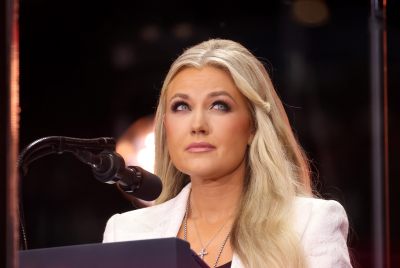US Senator Claims Eating Radioactive Shrimp Will Make You An Alien - Is Video Real Or AI? The Answer Will Surprise You
Low levels of caesium-137 were found in imported shrimp, posing long-term cancer risks, but no immediate health danger

Louisiana senator John Kennedy has drawn attention after claiming during a Senate debate that eating imported shrimp contaminated with radioactive material could cause people to 'turn into an alien' or 'grow an extra ear'.
The comments, delivered with a still from the 1979 sci-fi film Alien as a prop, quickly spread online. A video of the speech, confirmed as authentic by C-SPAN, has been viewed more than a million times, prompting scientists and regulators to clarify the genuine risks behind contaminated seafood.
Kennedy's Comments
Speaking during a discussion on food imports, Kennedy alleged that shrimp from Indonesia contained traces of radioactive caesium-137, a substance linked to cancer risk at high doses. He warned colleagues that consumers could suffer severe consequences if the products reached supermarket shelves.
'If you eat this shrimp ... you could end up looking like the alien in Alien,' he told colleagues. His theatrical warning drew audible reactions in the chamber and was widely shared on social media, where many users mocked the comparison while others questioned whether the footage was genuine.
FDA Response
The US Food and Drug Administration (FDA) confirmed it had recalled batches of shrimp imported from Indonesia after detecting low levels of caesium-137. In a statement, the agency said the radiation levels did not pose an immediate threat to health but advised against eating the affected products, as prolonged exposure could increase the risk of cancer.
According to the Associated Press, the recall covered more than 60,000 packages distributed by companies including AquaStar USA Corporation and Southwind Foods, sold under brands such as Great Value, Arctic Shores and Best Yet. No illnesses have been reported, but the FDA has urged consumers to check packaging and return or dispose of recalled items.
Expert and Public Reaction
Radiation and food safety specialists stressed that the risk is tied to long-term health effects, not sudden mutations. The Daily Beast reported that Kennedy's reference to Alien was dismissed as misleading, with experts noting that contamination of this kind is associated with elevated cancer risks rather than science-fiction scenarios.
On social media, C-SPAN's clip of the remarks was shared widely, generating disbelief and ridicule. Fact-checkers, including Entertainment Weekly, confirmed that the footage was authentic and not AI-generated, as some viewers had speculated.
🚨😂 Senator Kennedy:
— The Lumberjack (@timbeeeeeer) September 3, 2025
“THIS is what you could end up looking like if you eat some of the FROZEN SHRIMP sent to the US. I kid you not, the shrimp is RADIOACTIVE”
Don’t know how his aide managed to keep a straight face 😎 the whole time pic.twitter.com/8EaVVYXR3N
What if the FDA gutted the entire DEI department and put more inspectors in the field? In a global marketplace soversight is just a reality. Indonesia is an absolute pit and Muslim they really don't care.
— Mark V.🇺🇸🏴 (@MarkVos64105000) September 3, 2025
Comment
by u/Doomenor from discussion
in TikTokCringe
Comment
by u/Doomenor from discussion
in TikTokCringe
Scrutiny of Seafood Safety
Senator Kennedy, a Republican known for his outspoken style, has not clarified whether his comments were intended literally or as satire. He has previously drawn headlines for colourful language in the Senate chamber.
The debate comes against a backdrop of wider scrutiny of seafood safety. After the Fukushima nuclear disaster in 2011, international monitoring programmes were strengthened to track radiation in Pacific imports. While trace levels are sometimes detected, regulators emphasise that recalls and testing are in place to protect consumers.
Sensationalism vs Science
Kennedy's remarks have reignited discussion about how politicians communicate public health risks. While his speech drew attention to the FDA recall, experts warn that sensational comparisons risk undermining trust in scientific guidance.
For consumers, the essential advice is to follow official recall notices and rely on evidence-based assessments. The controversy highlights both the challenges of managing food safety in a global market and the importance of measured communication in maintaining public confidence.
© Copyright IBTimes 2025. All rights reserved.




















